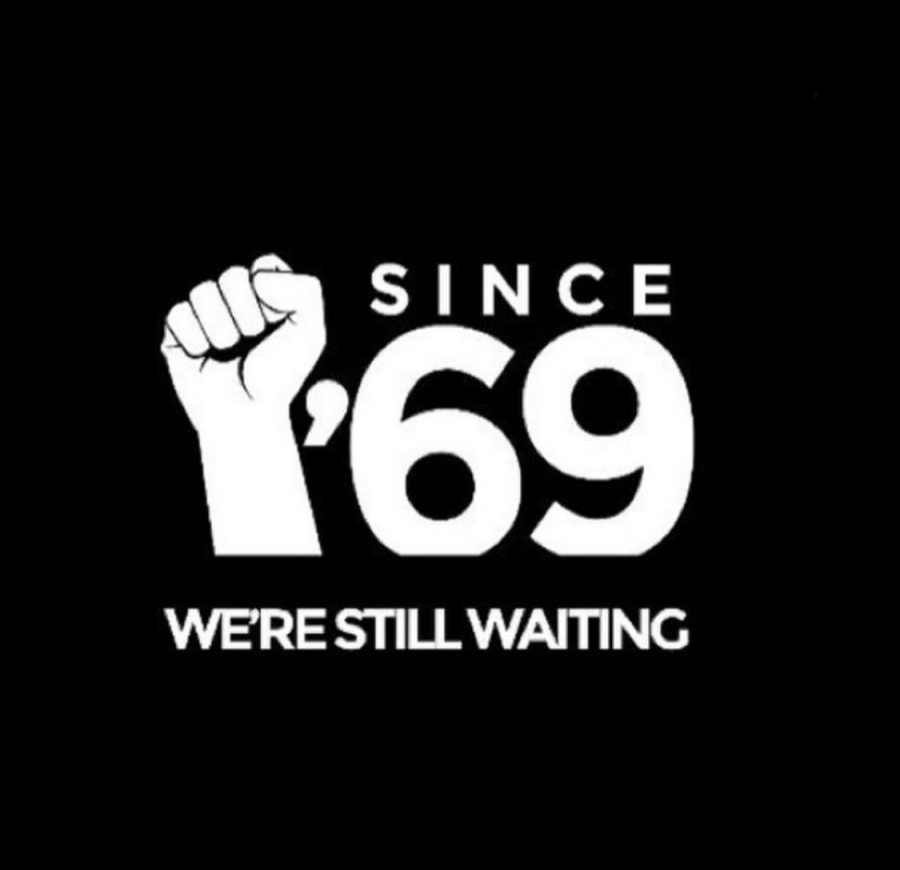In the midst of users on Instagram, an account emerged on Feb. 17 that relates to some Utica College students. The page, called “Since ‘69,” is run by a group of students who are seeking racial equality on campus.
Senior Hermina Garic said the account was started by students who think the college has not met the demands of black students that were made in 1969.
The account was made shortly after Garic, the former Student Government Association president, and former SGA Vice President Kendal Santiago resigned from the SGA. However, Garic said the resignation was not in direct connection with the start of the page.
“We saw that the administration was not very responsive to the black and brown community on our campus, and we really needed them to pay attention and see that these issues have a rolling effect in terms of seeing white students as leaders, but not seeing black and brown students as leaders,” Garic said.
The goal of the account is to provide a space to report on any racial incidents that occur on campus. Students can message the page and use it to get support and find out what the next steps are.
“We (Since 69) do investigations in terms of what happens, and we try to push for the changes that need to be made, whether it’s calling the administrators, whether it’s working with the Diversity and Inclusion Office, whether it’s talking to faculty and staff so they know,” Garic said. “Unless you sit down and talk to people, people don’t know and that’s what needs to happen on our campus.”
Dean for Diversity and Inclusion Alane Varga said she heard about the account but did not see it until recently.
Varga had mixed opinions, but said social media is the “new way” for people to get their messages across.
“Social media provides information and outlets,” Varga said. “When people have very real concerns, like challenging racism and looking for change, a social media page can be a powerful tool.”
She said in terms of raising concerns about specific instances on campus, it is harder for members of the institution to respond because the postings are all anonymous without talking directly with those who are involved.
Despite the concerns, Varga said she appreciates that the students behind the page, who are referring to some of the events of 1969, are looking to the history of Utica College for a foundation to build on and move forward from.
“I see the value in connecting to and understanding our history, but I’d suggest that we need to go even further than what might have been part of the platform in 1969,” Varga said. “Diversity needs to be reflected in the curriculum we build, the policies and processes we develop, in our efforts to hire and retain faculty and staff who reflect the diversity of our student body, the programming we do and in ensuring we communicate effectively about action steps that are underway and what more needs to be done.”
Varga said these basic issues should not be forgotten or assumed to be fully addressed and that the college is in “a different place” than it was in 1969.
Looking ahead, Varga also said there are a number of initiatives planned that are intended to address current concerns. They include inviting alumni from 1969 back to campus to meet and talk with students and plan for the Black Student Union’s 50th anniversary, creating an advisory council on race, equity and inclusion and starting a bias incident response process, which is set to launch within the next couple of weeks. This will provide a place for members of the UC community to go if they experience or see a bias-related incident or hate crime on campus.
“Some members of the UC community, might not know where to go when they go through or see an incident happen on campus,” Varga said. “We hope this will serve as an avenue for them, and help with responding to and supporting those who report incidents, as well as tracking what’s happening at UC.”
Assistant Professor of Sociology Richard Duque teaches a course in race and ethnicity and was unaware that any demands or promises were made.
Duque, who is Hispanic, remembered a holiday party he attended for faculty and staff. He felt out of place because there were not many other minorities there.
“That represents the history of this region, too,” he said. “The staff and the administration are generally of European and Caucasian background, but I didn’t see it until I saw it here.”
Duque also said the holiday party was eye-opening for him because it reflected the lack of diversity that exists between faculty and staff members. He also said it was interesting that students in 1969 wanted more people of color in these administrative positions.
“When you look at it, the faculty and staff members here do not represent the diverse student body right now,” he said. “If the claim is that these promises were made in 1969, then surely now, they need to be fulfilled because it seems like an imbalance in a sense.”


















![President Todd Pfannestiel poses with Jeremy Thurston chairperson Board of Trustees [left] and former chairperson Robert Brvenik [right] after accepting the university's institutional charter.](https://uticatangerine.com/wp-content/uploads/2023/10/unnamed.jpeg)


















































































































